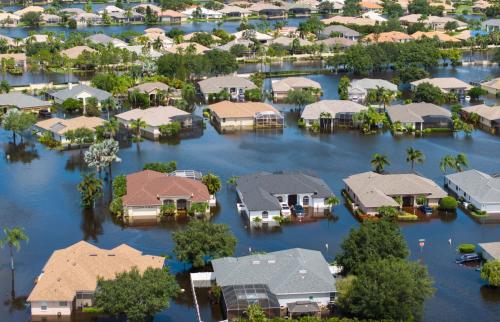Building a secure energy future for the United States would be a fine cornerstone of a first term in the White House. Your campaign pledge to reduce our dependence on oil and to slash greenhouse gas emissions by 80 percent by 2050 heralded an exciting new approach to energy security and climate change. Now a more detailed work plan is needed.
As a first step, your inaugural address might introduce the “Energy Security and Climate Protection Act of 2009” to expand on your campaign proposals in low-cost, high-impact ways. Legislative goals would include two separate but complementary challenges: stimulating investment in alternative energy sources and launching a global diplomatic energy security campaign.
With oil prices in roller-coaster mode, Congress will question whether we can afford investments in new technologies at a time of economic belt-tightening. Argue that we cannot be held hostage to price volatility. When the economy recovers, we are likely to see the return of rising prices, driven by increased demand in countries like China and India. Reducing our oil dependence will take time, but we must start now.
As you said on the campaign trail, the nation can switch half of the auto fleet to plug-in hybrid electric vehicles by 2025, cutting oil consumption by one-third and carbon emissions dramatically. Conservation is critical, so do not hesitate to double fuel efficiency standards for cars.
Launch a new federal partnership with state governments on energy infrastructure and standards. With federal funds, states can more readily advance your goals to set standards for a “smart electric grid.” States can require utilities to use renewable energy sources to provide a specified minimum of all electricity they deliver. And, states are better positioned to set limits on offshore oil and gas drilling to protect the environment.
We recommend you implement a cap-and-trade program, similar to what you pledged in your campaign. Each year the government would either allocate emissions rights or auction them, and companies will buy and sell rights among themselves. Annual emission allowances will decrease until eventually reaching your 80 percent goal — with responsibilities shared among oil refineries, power plants and energy-intensive industries. You can expect some congressional opposition to this. Many will urge you to keep energy prices low, especially in a coming recession. You need to be clear that sending a long-term signal about the true costs of emitting greenhouse gases is essential to preventing a climate catastrophe.
Once domestic legislation is passed — but not before then — you will be in a position to pursue global energy diplomacy. For starters, negotiate a General Agreement to Reduce Emissions that replaces the Kyoto Protocol. Start with domestic U.S. action and then ratchet upward. Work with other nations to align mutual ambitions to cut carbon emissions and to establish a system to trade emissions permits across borders.
One-on-one energy diplomacy will be vital with China and India in particular. Neither bears any responsibility under Kyoto and both are reluctant to take on new obligations. Moreover, both are critical partners in your non-proliferation efforts. Powerful oil-rich nations, such as Russia and Saudi Arabia, and hostile regimes, such as Venezuela and Iran, must also be central in your thinking about the broader energy security challenge.
Finally, a new era in energy policy will require an overhaul of U.S. governing institutions. A new National Energy and Climate Council at the White House would dramatically signal the urgency of these issues. Ultimately, that will lead to a redesign of the 10 energy-related Cabinet agencies and corresponding congressional panels.
Specifically, the departments of Energy and Interior and the Environmental Protection Agency will need to be redesigned to advance clean energy investments, reorder policy priorities towards energy efficiency and develop less intensively carbon-based fuels and end-use technologies.
Which agency would establish and operate the new domestic emissions trading system? Give this major consideration, especially on the heels of the financial crisis and heightened concerns about oversight.
To accomplish all of this, you will need to invest significant political capital. But surely this is an investment with both immediate and lasting benefits.
The Brookings Institution is committed to quality, independence, and impact.
We are supported by a diverse array of funders. In line with our values and policies, each Brookings publication represents the sole views of its author(s).


Commentary
Op-edMemo to President-elect Barack Obama: Building a Secure Energy Future
November 14, 2008